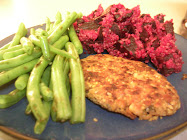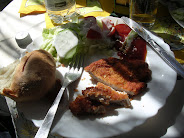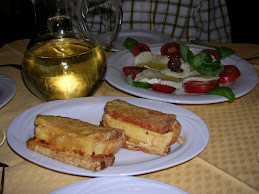Currently I am reading two books. The first one I started is Appetite for Profit by Michele Simon. While I tend to agree with much of what Simon discusses in the book, I am having a hard time getting through it because the organization is too S for my tastes (according to multiple Myers-Briggs tests I am a very strong N... not a surprise to anyone who has had a real conversation with me) and I feel that she is repeating the same argument over and over again. Corporations cannot be trusted to do anything in the interest of public health because they are more concerned with profit. I get that. But anyway... because of great recommendations I plan to continue through Simon's book... but while I do that I decided to start Brian Wansink's Mindless Eating.
First, a little background, Wansink is currently a professor of consumer behavior at Cornell University. This specialization has him dabbling in the fields of Economics, Behavioral Psychology, Business, and a variety of other fascinating subjects. (He also just happens to be a professor in the Applied Econ program that keeps floating around in the back of my head as a possibility here soon...) But, Wansink conducts experiments at his Food and Brand Lab where he tries to figure out how different environmental factors influence what and how much we eat. Mindless Eating is a great book for anyone who is trying to lose weight, because it points out a number of unhealthy habits we have. Eat on smaller plates. Eat slowly. Create a positive atmosphere. Replace short fat drinking glasses with tall skinny ones. All of these can be used to effectively trim calories from your daily consumption. More than just a diet book, however, it is very interesting and slightly depressing to realize vulnerable our food choices are to environmental factors. I also love the fact that this book applies quantitative, scientific analysis to our food choices.
I just finished reading a chapter entitled "Name Game." Wansink talks about how our enjoyment of food is shaped significantly before we taste it by the name of the menu item or the label on the bottle of wine. He provides a number of references to support this claim. He ends up talking about wines, citing the fact that very few people can actually distinguish good wine from great wine, and most choose a bottle by first choosing a price range. "Well, this is a nice party and she's a good friend so I should spend about $15 on the bottle of wine I bring..." As often as I am currently surrounded by people who talk as if they could distinguish a California Merlot from a Chilean Cabernet... I'm not so sure they could. I'm not ignorant when it comes to wine, but I know my palette cannot make that distinction. Wansink brings this point up and argues that the enjoyment is influenced by expectations, but another big red wine flag went up for me as I was reading this part.
How closely can Veblen's theory of conspicuous consumption be applied to our eating decisions? (For a quick, game theory enhanced overview of this theory check out my college project Conspicuous Consumption, I would also highly recommend reading up on the "Special Applications" at the bottom of the page!) Isn't choosing the wine to bring to a party based on price an example of someone who is trying to consume in order to fit into a certain social group? Wansink also discusses how eating in groups tends to encourage both heavy eaters and light eaters to forgo their extreme habits and mirror the habits of the group (discussed in "Mindless Eating Scripts" page 96). Another example in which people are literally consuming in a way that helps them attain a certain status or acceptance. This is exactly what Veblen was referring to except food consumption actually goes into your body as opposed to consumption of clothes, vehicles, or houses which just goes around it.
I have little doubt that these conspicuous consumption ideas can be applied to wine snobs, organic eaters, vegetarians, locavores, or a variety of other high end labels that people define themselves with. We may not readily admit it, but there is a level of pride and belonging when one chooses to shop at Trader Joe's every week or decides to order the garden burger instead of the prime rib sandwich. But I'm not sure one could apply this idea as easily to the populations who struggle with obesity. Does a young man of color choose to gorge on Whoppers and fries and become obese because he wants to identify with a certain social group? I don't know. I suppose I just need to do more research to see how Veblen addresses those at the other end of the conspicuous consumption spectrum.
Subscribe to:
Post Comments (Atom)







No comments:
Post a Comment